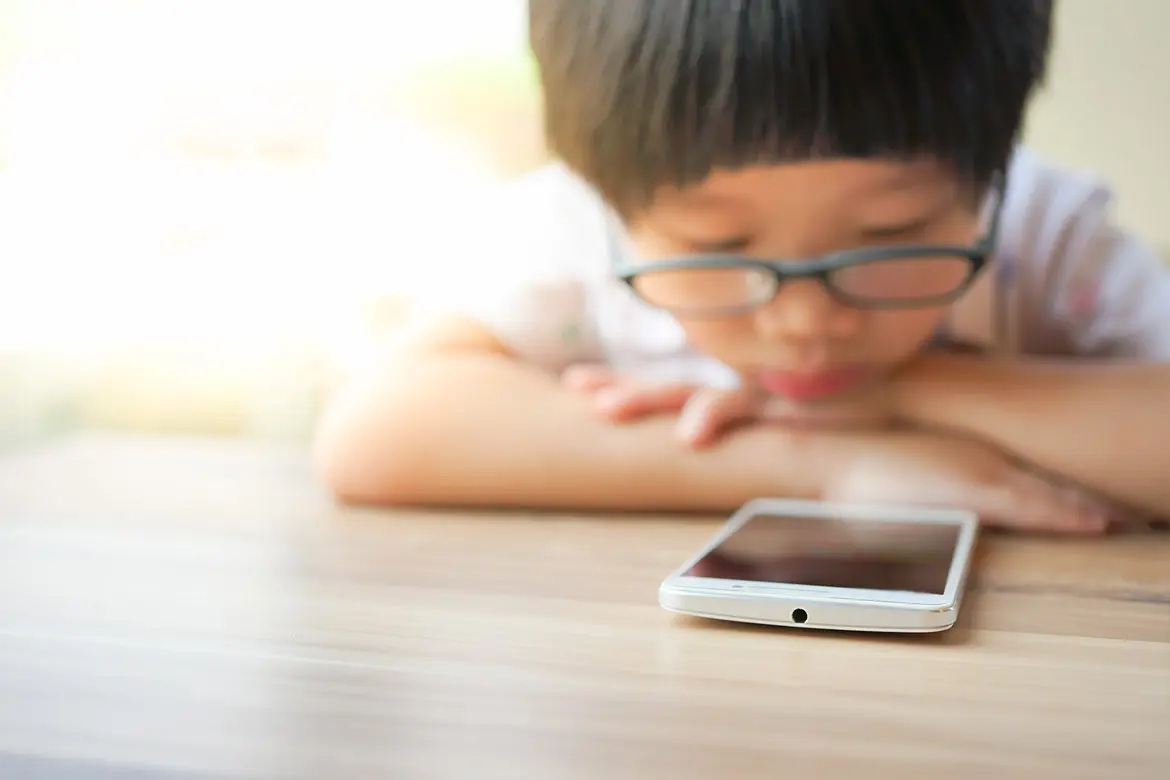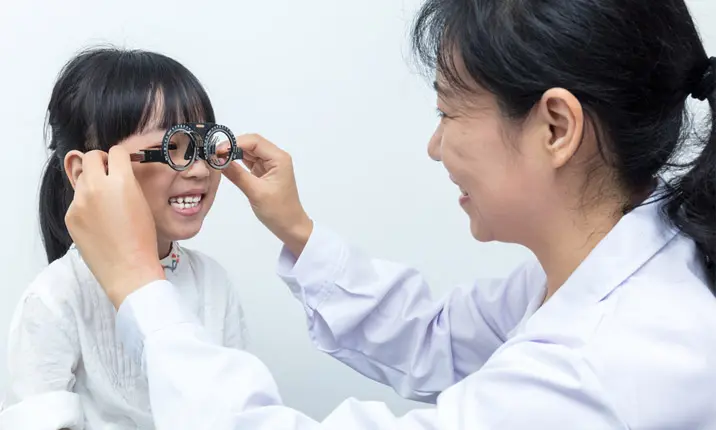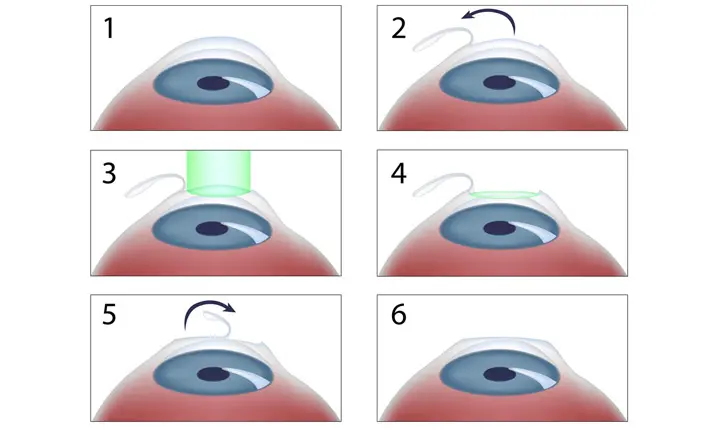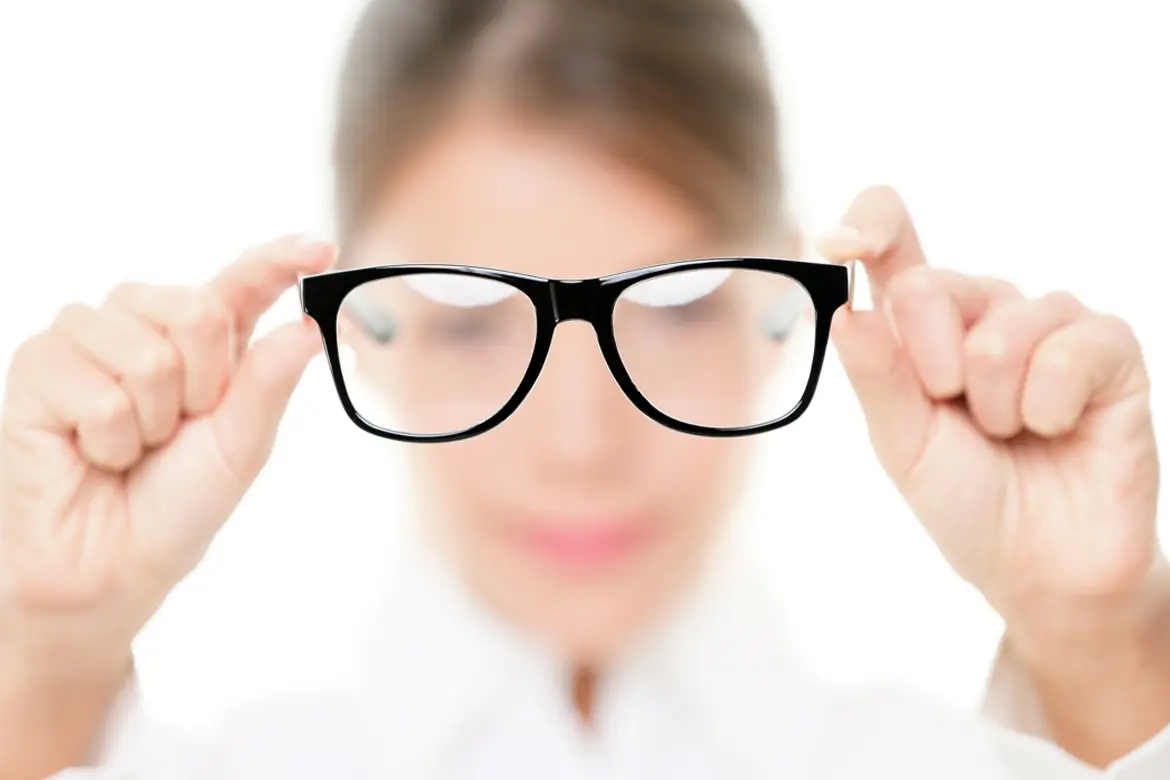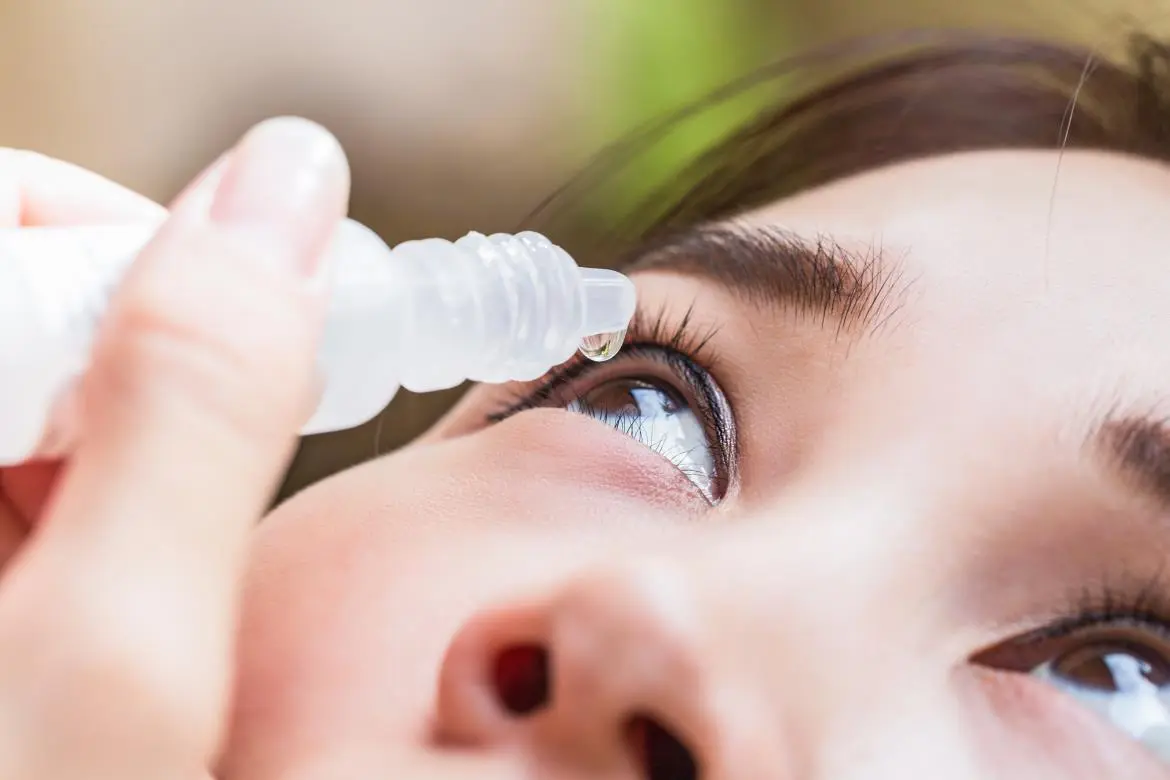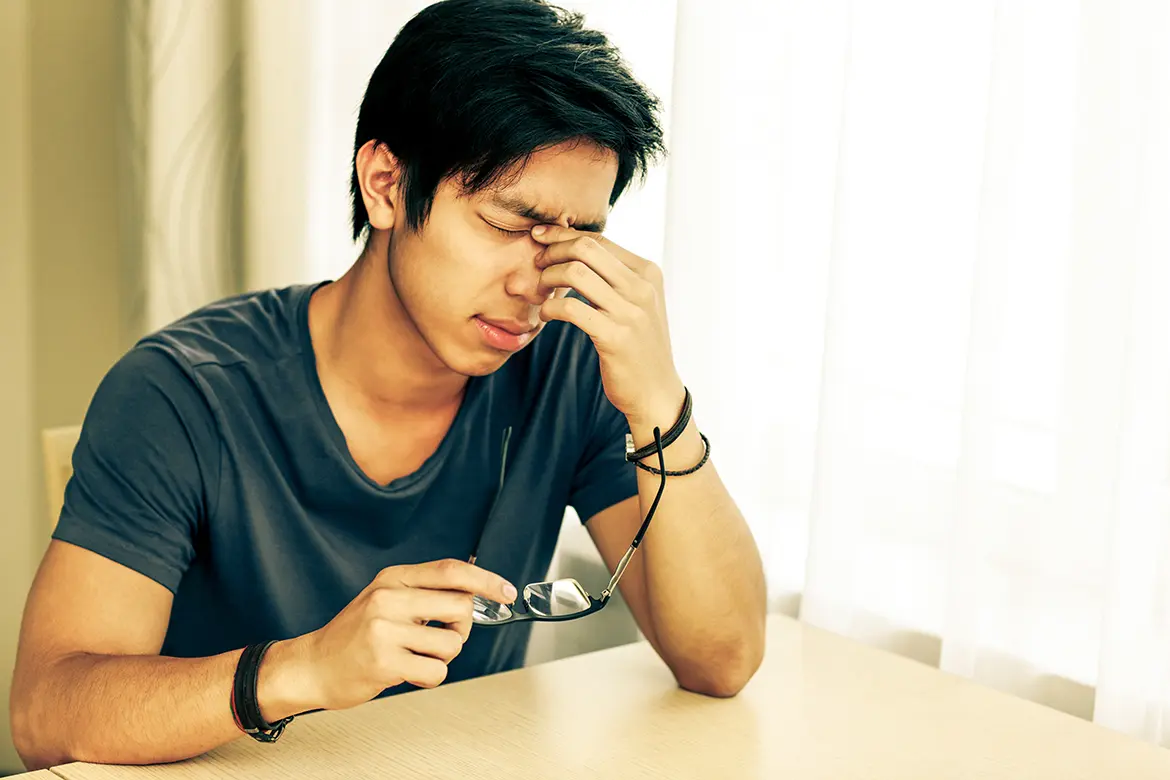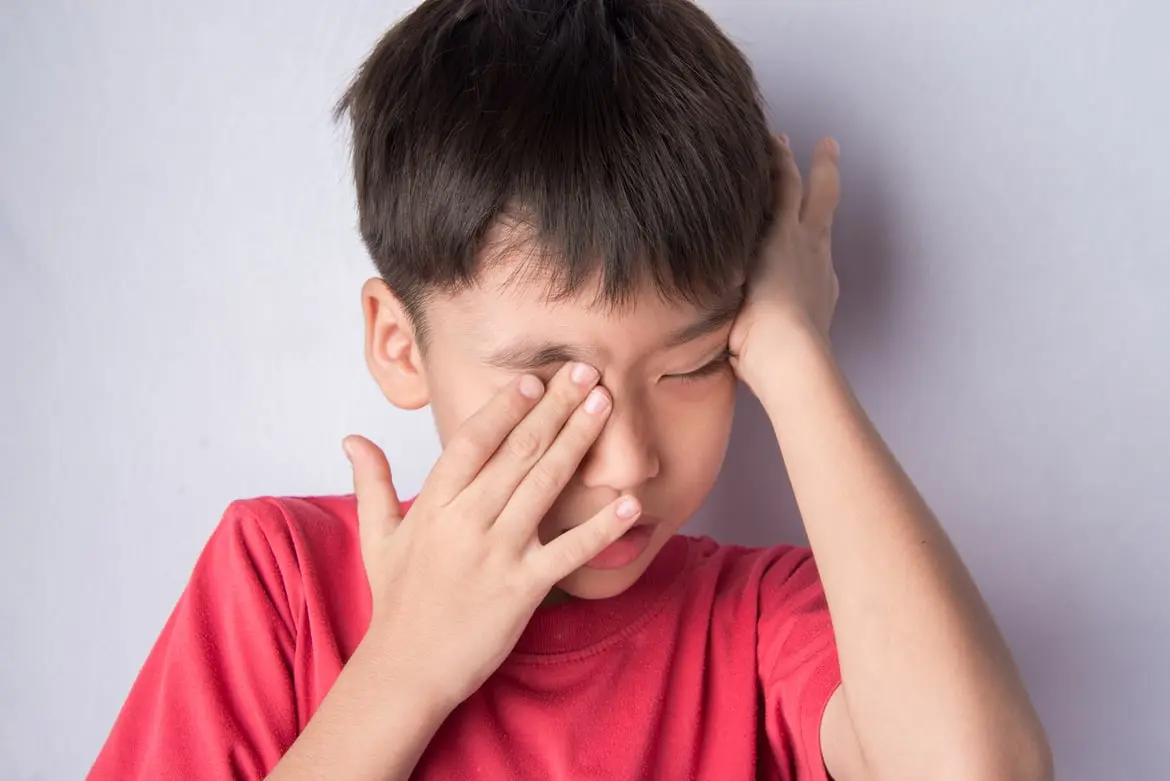For the majority of Singaporeans, spectacles are not just a fashion accessory, they are a necessity to correct poor vision due to myopia. The condition, also known as short-sightedness or nearsightedness, affects many of us from a young age, hence parents play a significant role in promoting healthy habits that could prevent myopia or myopia progression.
Myopia is a huge problem in Singapore, which is all the more alarming when we compare the statistics with our Australian neighbours. By the time Singaporeans reach the ages of 15 – 19, a whopping 74% of us are myopic, whereas in Australia, the number is less than half, around 30%.
What is myopia?
Myopia is a condition in which you can see nearby objects clearly while objects that are far away will be blurry. It occurs when the light is refracted incorrectly within the eye due to the eyeball being longer than normal. As a result, the image is focused in front of the retina instead of on the retina. This is known as refractive error.
"The fundamentals of myopia is that there's an elongation of the eyeball, but the elongation of the eyeball itself predisposes you to other problems, like early cataract development, retina tears and breaks, glaucoma, or even the nerve being thinned out, which is a condition also known as macular atrophy," said Dr Lim.
Causes of myopia in children
Myopia can develop gradually or rapidly, from one of several causes that include:
Genetics
The tendency to develop myopia is a hereditary trait, so a child born to parents with myopia is naturally more susceptible to it. In some cases, short-sightedness can even progressively develop from a young age, and stabilises in adulthood.
Too much near-sighted work
When we perform tasks that require up-close vision, such as reading or using our smartphones, there is a lot of focus on the centre of the eye, while the peripheral vision is defocused. Prolonged periods of time performing these tasks can cause myopia. This is why it's recommended that we take breaks after 30 – 40 minutes of near work to look at distant objects. This helps with eye fatigue and dry eyes.
Insufficient time spent outdoors
Based on studies and observations, greater exposure to natural light is significant in helping children avoid developing myopia, or slow down myopia progression. With reference to the significant difference between myopia rates in Singapore and Australia, the average, Australian kids spends about 7 hours more outdoors per week than Singaporean kids do.
Dr Lim recommends parents encourage their children to pursue outdoor activities such as bike rides or playing sports, to help children get more ambient light exposure.
Symptoms of myopia in children
Parents should be alert for these symptoms of myopia in their children:
- Persistent squinting
- Constantly needing to sit closer to the television, movie screen or the front of the classroom in order to see clearly
- Being unaware of distant objects
- Excessive blinking
- Frequent rubbing of eyes
Can myopia be reversed or cured in childhood?
Unfortunately, there is no natural cure or way to reverse myopia in children.
Certain old wives' tales suggest that children with myopia can be 'trained' to develop perfect vision again by discouraging them from wearing their spectacles. However, science has shown that not wearing spectacles does not work to control or prevent progression of myopia. In some cases, it might actually worsen their condition due to the increased strain on their eyes.
While childhood myopia cannot be reversed, you can take steps to slow it down or prevent it. If your child is short-sighted, they need a pair of prescription glasses to correct their vision. After which, parents should encourage healthy eye habits such as reduced screen time and engaging in more outdoor activities to prevent their eyesight from worsening.
Treating myopia in children
If your child has myopia, it is important to treat the condition and prevent it from getting worse. This will include prescription glasses, medication and good eye habits.
You should also have your child's eyes tested regularly, especially if there is a family history of myopia or other eye conditions, so the doctor can monitor their progress, detect problems early and recommend the appropriate treatment to prevent them from getting worse.
Atropine eye drops
While this medication does not prevent the development of myopia, many studies have shown its effectiveness in controlling the condition. Currently, atropine is only used in eyes drops at concentrations as low as 0.01%, so it doesn't cause side effects such as photophobia, a condition where our eyes develop sensitivity to sunlight or strong lighting. The eye drops are typically used daily over 2 years, and if the condition has stabilised by then, medication can be stopped for a year with regular follow-ups with an eye doctor to monitor for rebound.
Prescription glasses
Prescription glasses are the most common way to treat and manage myopia. Using specialised tools to measure the level of refractive error, an accurate prescription will refocus light rays entering the eye so the image is focussed correctly on the retina.
Good eye habits
There are currently no studies in support of a particular sequence of exercises one can do to control myopia progression. Instead, Dr Lim mentions that having good eye habits such as outdoor play in ambient lighting and taking regular breaks by looking at distant objects will be effective in preventing progression of myopia.
Can LASIK fix myopia?
What is LASIK?
LASIK is a laser-assisted surgery that restructures the cornea. It has become a popular procedure for those who wish to correct their vision, but contrary to popular belief, it is not a miracle cure for all eye problems. Instead, LASIK only reshapes the cornea to allow light to focus on the retina.
For children who have high myopia, LASIK does not help to reduce the increased risk of conditions such as cataracts, detached retinas and glaucoma.
Having high myopia also increases the likelihood that myopia may return after LASIK treatment. Other factors include having co-existing astigmatism, ageing, poor nutrition affecting eye health, vitamin A deficiency, conditions like cataract or retinal disease, and ongoing poor eye habits such as excessive close-up work and screen time.
"At the end of the day, treating myopia to prevent its progression is still very important. Regardless of which form of treatment you choose, as parents, we still need to take extra care to keep our children's myopia under control, and nothing beats the benefits of inculcating healthy lifestyle habits. Besides pharmaceuticals and devices, it's still important for people to understand that outdoor play, ambient light, and less screen time for children is still very key to combatting the development and progression of myopia," says Dr Lim.
